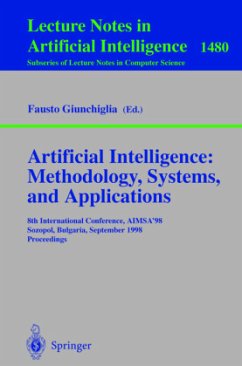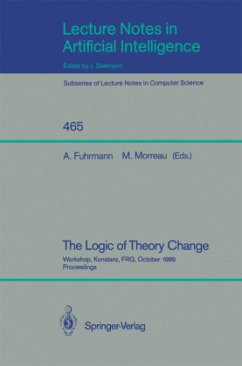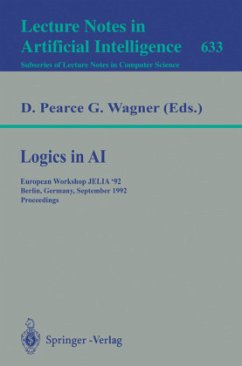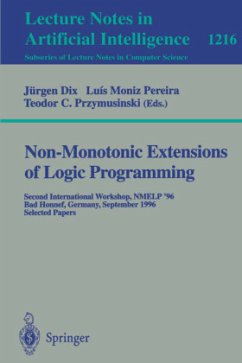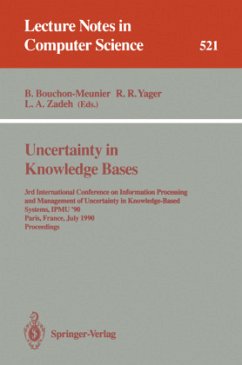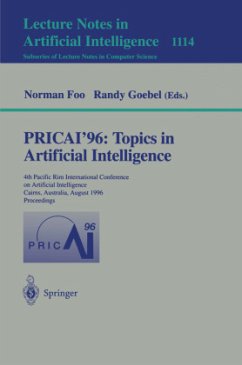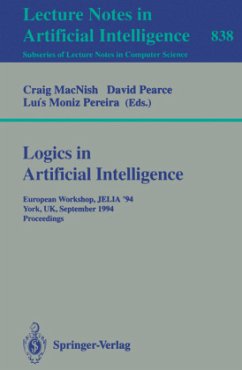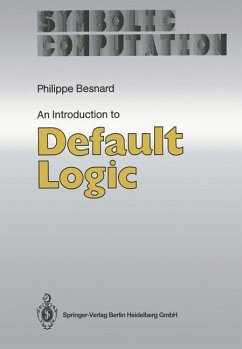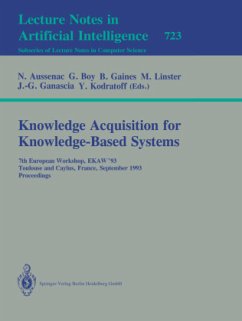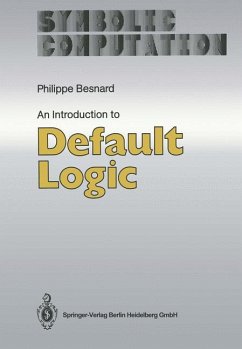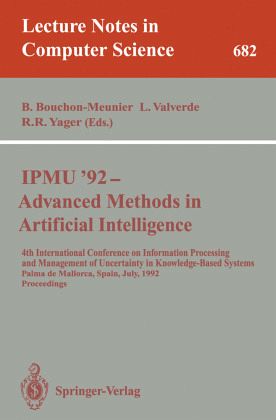
IPMU'92 - Advanced Methods in Artificial Intelligence
4th International Conference on Information Processing and Management of Uncertainty in Knowledge-Based Systems, Palma de Mallorca, Spain, July 6-10, 1992. Proceedings
Herausgegeben: Bouchon-Meunier, Bernadette; Valverde, Llorenc; Yager, Ronald R.
Versandkostenfrei!
Versandfertig in 1-2 Wochen
39,99 €
inkl. MwSt.

PAYBACK Punkte
20 °P sammeln!
The papers in this volume are extended versions ofpresentations at the fourth International Conference onInformation Processing and Management of Uncertainty inKnowledge-based Systems (IPMU), held in Palma de Mallorca,July 6-10, 1992.The conference focused on issues related to the acquisition,representation, management, and transmission of informationin knowledge-based and decision-making systems. The book isfocused on methodologies related to artificial intelligence,including both theoretical and applied papers.The first section of the book is devoted to non-monotonicreasoning and the managem...
The papers in this volume are extended versions ofpresentations at the fourth International Conference onInformation Processing and Management of Uncertainty inKnowledge-based Systems (IPMU), held in Palma de Mallorca,July 6-10, 1992.The conference focused on issues related to the acquisition,representation, management, and transmission of informationin knowledge-based and decision-making systems. The book isfocused on methodologies related to artificial intelligence,including both theoretical and applied papers.The first section of the book is devoted to non-monotonicreasoning and the managementof default knowledge. Thesecond section deals with methods using non-classical logicsto deal with imperfect knowledge and to represent itsspatial and temporal components. The third section presentsvarious methods for the acquisition of uncertain andimprecise knowledge. The fourthsection is concerned withthe use of qualitative, uncertain, temporal, and ambiguouspieces of information in knowledge-based systems, expertsystems, and process controllers. The last section containspapers using artificial neural network methodologies.





